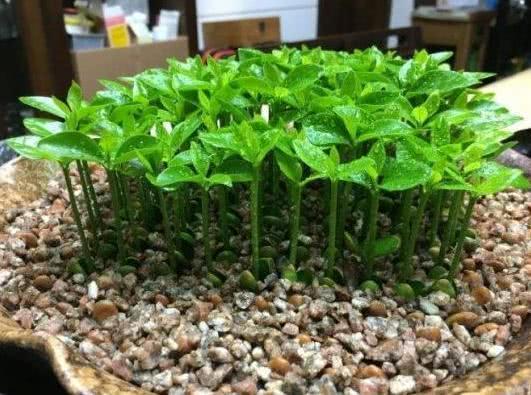Cauliflower looks like Buddha's head, giant leeks are taller than people, and there are only one kind of strange vegetables I've ever seen.

We usually grow vegetables in order to taste fresh and be happy! If you look at these cattle vegetables, you probably won't have to buy vegetables for a lifetime. Cauliflower looks like Buddha's head, giant leeks are taller than people, and there are several strange vegetables. I've only seen tomatoes.
1. Tomato tree
This is also too high output, too dense, dense phobia into!
There are mature, immature, all kinds of colors.
If we can hang dozens of fruits in a plate of potted tomatoes, it's time to smile! But look at these tomatoes. They all grow into big trees. Isn't it amazing? These magical tomato trees are high-quality vegetables, which can generally bear fruit in the same year, and can yield continuous benefits for 20 years at a time. One tomato tree can produce tens of thousands of fruits a year, with a total of more than 6000 jin. What a high output!
2. Pagoda cauliflower
The same as the head of the Tathagata Buddha
Cauliflower looks like spires one after another.
This kind of special cauliflower looks very strange, like a pagoda, one by one looks like a spire ~ weak to say, I have never seen it.
Pagoda cauliflower originated in Europe, Italy, France and other places, is currently the most popular new variety of green cauliflower in European countries, pagoda cauliflower is very rich in nutrients, it is measured that the content of vitamin An is 46 times that of white cauliflower. Don't you eat 46 common white cauliflower on top of a pagoda cauliflower?
3. Giant leek
Wow, a lot of aloe vera are actually giant leeks.
A spring onion is almost as big as a child.
Leeks are native to south-central Europe. It was introduced into China in the 1930s and cultivated in Guangxi for a long time, mostly instead of garlic seedlings. This kind of giant leek is rare. The picture above shows that the leek is the size of a child at the giant vegetable exhibition held in the UK. It is amazing that you have to admire the power of the plant.
4. Snake melon
Have you ever seen a melon like a little snake? I hope you're not afraid.
It's still quite dense.
Snake gourd, also known as snake towel gourd, some vertical, some curved, some curly tail, like a long snake under the scaffolding, it can be called giant beans, its taste is very similar to the beans we usually eat, except that it contains more moisture and dietary fiber. Because the size of snake melon is much bigger than ordinary beans, one snake melon can give a family two meals. Er, I don't know if you dare to eat it.
- Prev

How happy are 13 romantic balcony designers and loved ones hugging each other?
There are 13 romantic "balcony designs", each of which has his own space. Space is a beautiful mirror. Like to taste the text silently, as chic as the wind, as pure as rain, as transparent and refreshing as the heart. If there is one in the balcony.
- Next

The flower cultivation expert buried the grapefruit seeds in the pot for 3 days and germinated for a month to grow potted plants.
There are more and more people raising flowers, and there are not a few potted plants, fruits and trees. There are also some flower growers who are especially good at growing seeds into potted plants. Speaking of which, I have to admire these flower friends. They are simply amazing. A small one...
Related
- Wuhan Hospital Iron Tree Blooming Result Was Instantly Frightened by the Gardener Master
- Which variety of camellia is the most fragrant and best? Which one do you like best?
- What is the small blue coat, the breeding methods and matters needing attention of the succulent plant
- Dormancy time and maintenance management of succulent plants during dormancy
- Minas succulent how to raise, Minas succulent plant pictures
- What are the varieties of winter succulent plants
- How to raise succulent plants in twelve rolls? let's take a look at some experience of breeding twelve rolls.
- Attention should be paid to water control for succulent plants during dormant period (winter and summer)
- Watering experience of twelve rolls of succulent plants
- Techniques for fertilizing succulent plants. An article will let you know how to fertilize succulent plants.

